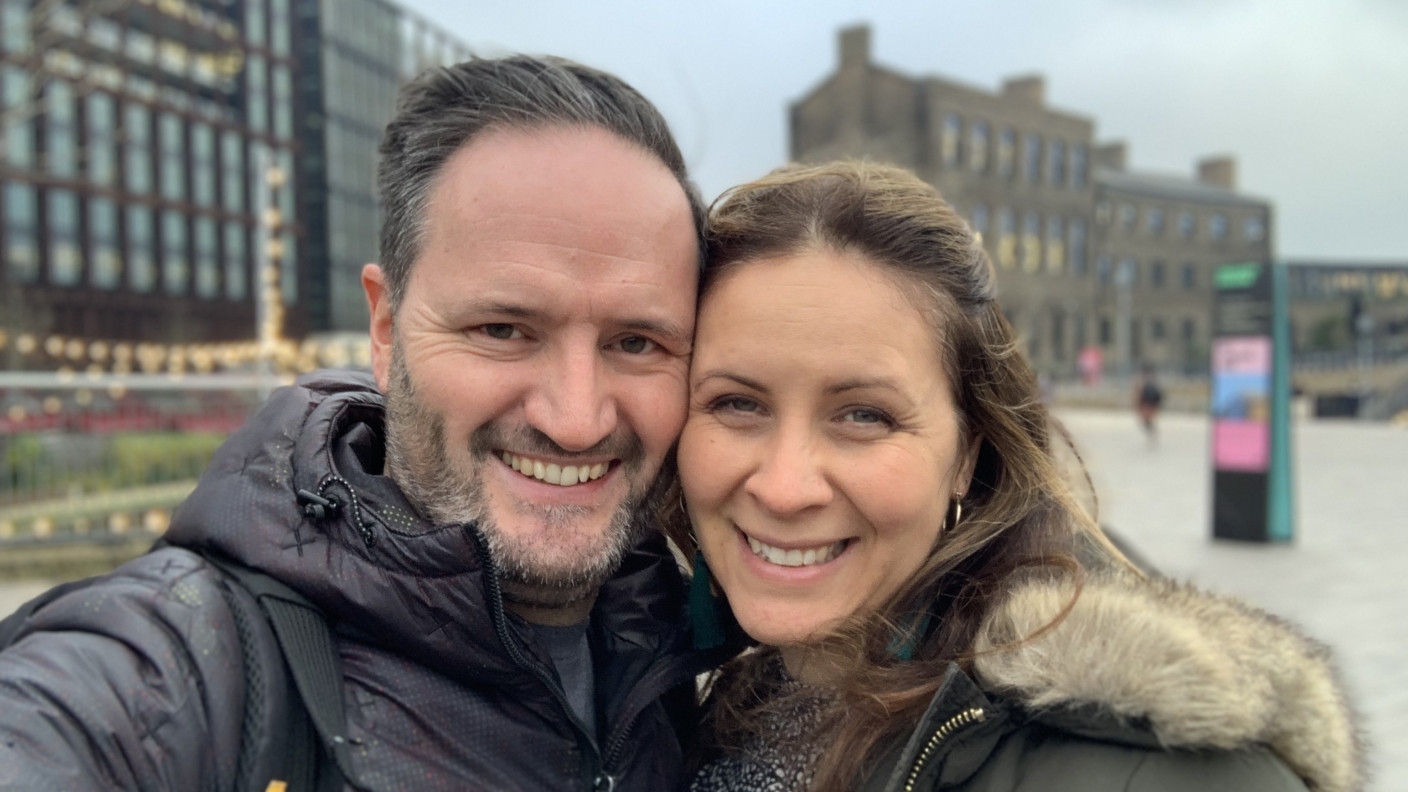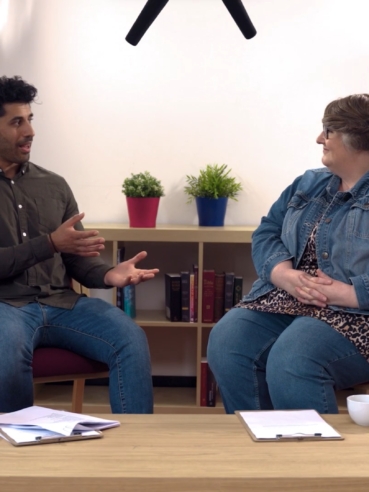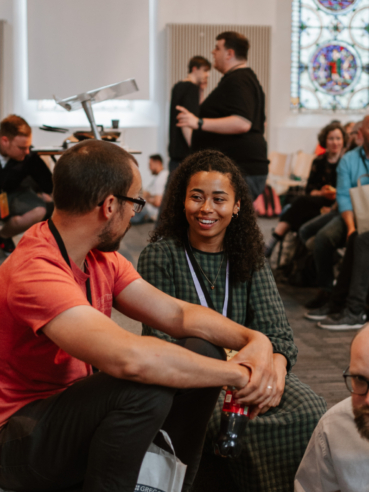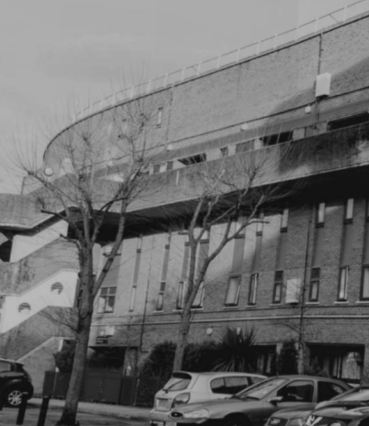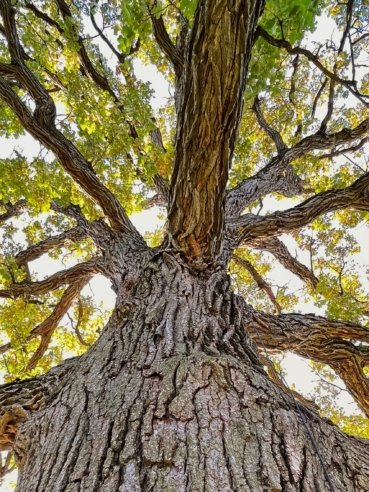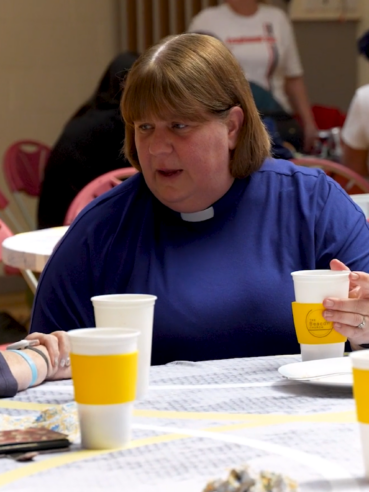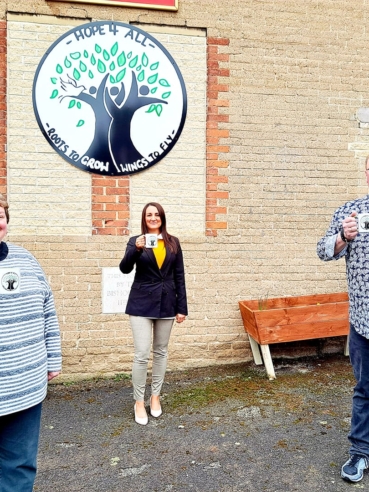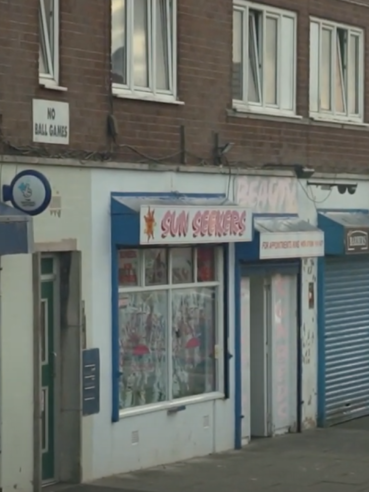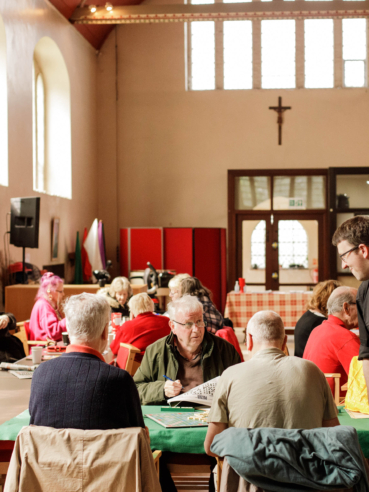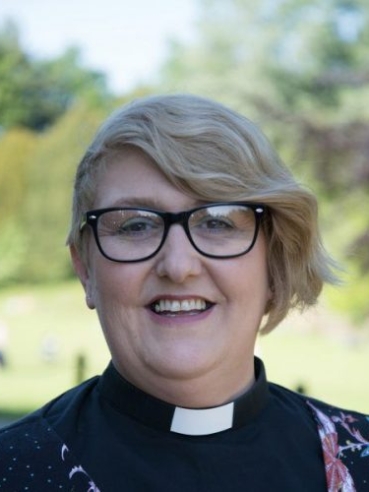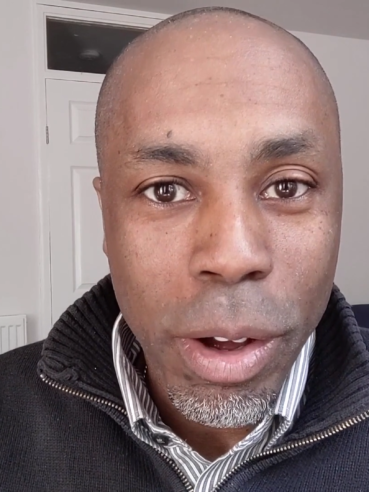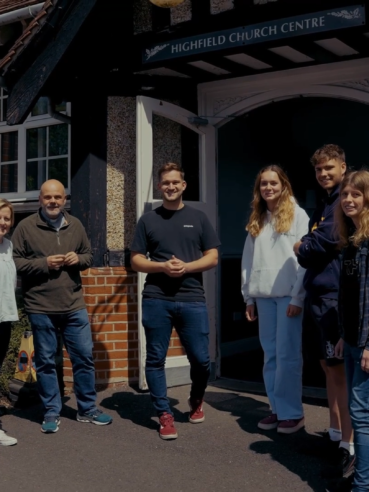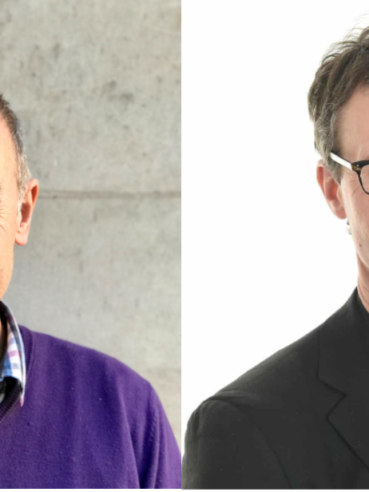Ben and Amy, please tell us a bit about yourself and your background:
I (Ben) am a vicar in the Church of England and I co-lead the Antioch Network, a church planting network in the Diocese of Manchester focused on planting Anglican churches into council estates, urban communities and inner cities. I was brought up in the North West and since I was about 17, I’ve felt a strong calling to council estates. I’ve been living and working on estates for about 20 years now.
I (Amy) am a therapist working with children who have experienced early life trauma. When I was 15, our church did a mission on our local estate and God set a fire in my heart for estates and young people in areas of high deprivation. Ben and I met when we were 18 on a gap year in inner city Manchester and in our twenties, we set up and led an Eden project in Manchester with the Message Trust. We planted Oldhams Church in Bolton roughly six years ago and we’ve recently moved to another estate, where we’re planting a new church. We have three children and definitely see it as our family doing mission together.
What’s at the heart of your passion and drive to start new churches?
In our experience, it often seems that the church is either under-resourced or struggles to reach those within council estates. Our passion is to see churches thrive in these places, helping people to encounter Jesus, give their lives to him, grow in their gifts and find family. We sense a call to be a part of these communities, living there and helping to start new churches filled with God’s Spirit. In a wider sense, the Antioch Network helps existing churches reach those communities that are often within their parishes, but can sometimes be harder to reach, such as ethnically diverse areas or communities on housing estates. I think we also sense a call to support existing churches as they look to plant new worshipping communities and make new disciples.
We’re really passionate about growing churches from the grass roots – our vision of church planting is often focused on a few of us living or moving into the area and raising up leaders from the local community. These lay leaders might look very different from the leaders we’d might expect to see in church, but we feel that God wants to show us the gifts these people have and how he can use them. In our current church plant, we moved into the area but the rest of our team are from the local area. Raising up local leaders isn’t always an easy task but it’s definitely worth the challenge.
How did you church plant? What strategies or approaches did you use?
It’s great to have methods when we plant churches, but these have to be organic and grow from evidence and things that work. More importantly, when we planted Oldhams Church in Bolton, we arrived with lots of ideas and tools, but we felt that God was teaching us how to pray again. Prayer is not just an activity but it’s a posture – it’s coming from an acknowledgement that apart from Jesus, we can do nothing. With Oldhams everything came from this place of prayer and asking God ‘What is next?’ or ‘Who’s next’ or ‘Who is God highlighting and drawing to himself?’ This experience has informed how we approach our current church plant, the wider Antioch Network and supervising plant leaders. Every church plant needs to be grounded and established in prayer. We start here!
At Antioch, we have a three-stage method that we find helpful. First, the development stage, which focuses on identifying a leader and building a team. We can’t plant a church on our own. In our experience, if church plants don’t succeed, it’s often because there wasn’t a team in place. It doesn’t have to be a mega team, but it needs to be more than one person! We need eyes to spot leaders – they might not look exactly like us, especially when we are working on estates, but there’s great strength in diversity and raising up inexperienced leaders. The next stage is preparation – outreach and evangelistic activity. For example, we’ve done Messy Church, missions or outreach like treating at Halloween or gifts on Valentine’s Day. The third stage is the launch and establishment of the church, including public worship. Interestingly, when we tell people we’re starting a new church on the estate, often one of the first questions we’re asked is ‘Where does it meet?’ Mentioning a living room can sound a bit cultish and it seems to put people off, so we try to find a building as soon as possible! It’s great to have a permanent location where we meet regularly – it helps people feel more open to coming along.
Part of our strategy at Antioch is that once we’ve grown to about 50 adults, we start looking to plant again. We talk about the next church from day one and we imagine what it might look like. Our experience on estates has shown us that it can be quite hard for new people to step into a place full of lots of people; it can feel uncomfortable and overwhelming. We’ve found it’s often easier to build community in a smaller space, so we try to keep our communities to around 50 adults. Planting again is also a great way of releasing new leaders and growing our communities. Discipleship happens through relationships so it’s great to invest in one-to-one relationships and small groups.
What have been some of the challenges in leading and planting churches?
Working on estates or in areas of high deprivation can bring a lot of pastoral challenges. If someone is struggling with faith, it can often spill out for everyone to see and they can suddenly go to quite a dark place. It can be a real challenge in navigating discipleship and leadership; issues can still resurface a few years down the line and affect the community. We’ll never be sin free, but it can be hard working out when someone is ready for the next level of leadership. And it can also be difficult to get a balance between creating a caring, family culture when we look after one another, while realising that we can’t solve everyone’s issues – we’d burn out. It’s a long term process.
Another challenge is gathering a team – I think every church plant faces this and we’re exploring different ways to do this. Traditionally we gather a team beforehand and then plant, but sometimes we have to start something and then new team members get drawn in. We’ve also had to learn how to manage expectations from experienced and mature Christians who’ve been interested in joining our church plants. It’s great to talk about different expectations in an open way before people make a commitment. Our heart is for people to jump in and get involved. Another learning curve has been recognising that we all come from different backgrounds so we might approach church very differently from people who have grown up on estates. Our Oldhams church plant is loud, noisy and chaotic, which can be uncomfortable for some people. We constantly go back to Scripture and look at the early Church to explore what church is meant to be. The body of Christ is definitely not a homogeneous group of people who look and act the same, but this can be hard for some people.
What difference has church planting made to individual lives?
We’ve seen our church plants impact individual lives and whole communities. A few months ago, a lady at Oldhams Church told us that the church has really helped to bring the estate together and there’s been a deeper sense of community since the church started. We’ve also seen lots of people come to know Jesus, which has radically transformed their lives and families. For example, Ben met a lady going along to the local community centre. He would take donuts along and he got to know this lady. When we started doing public worship, she came along and within a few months she had invited her three older children along to church too. Subsequently, all their families came along too and they’re now pretty much all committed members of the church. They’re doing Alpha at the moment and two of them have been baptised. It’s been amazing to see this ripple effect on the family – God has encountered one family member and through this one changed life, other family members have been drawn to Jesus. It’s a great example of Jesus impacting a whole family.
We’ve also seen this ripple effect through a guy who was addicted to heroin & lived locally on the estate with his wife and kids. I (Ben) remember noticing this guy – he had a grey, washed out look due to heroin use – and I asked God, ‘How can we help someone like him encounter God and become part of our church?’ I felt God asking me to pray. A few months later he turned up to church with his family and a few weeks later he told me that he’d stopped taking heroin. We ran an “emergency” Alpha for him and a few others, he gave his life to Jesus and then he was baptised. He’s now been clean of heroin for four years. He and his whole family are now part of our planting team to this new estate in Bolton so it’s an amazing story. He also brought his best friend to Christ and a few months ago we married the friend to a lovely Christian lady. There was a gospel talk at the wedding where 10 people made a commitment to Jesus and more came up to me afterwards to talk about God. Again, it was family members who wanted to find out more after seeing how Jesus has transformed their loved ones. For us, these stories of individual lives and whole families being changed are what the Gospel is all about.
We’ve also come face to face with painful situations and experienced the reality of suffering through some of the people we’ve met. I met a guy one night who’d just seen his friend die from an overdose. This man was a registered anarchist and a militant atheist, but I was able to sit with him while he was in deep pain and share about Jesus and what God has done for us. I remember him saying as tears rolled down his face, ‘I’m an atheist but I believe what you are saying is true’. He was also a hard drug user but we saw him come to faith, do an Alpha course and get baptised. He became a beautiful part of our family. But a few months later he tragically died from his drug use. The pain that we all felt was huge and we were faced with the reality that things don’t always work out as we’d wish, but God is with us in the midst of that pain. His mum said she saw him at his most joyous in those months before his death and she finds a lot of comfort in that, so we hold onto this hope.
Lastly, what advice would you give to someone who is exploring church planting?
Church planting is statistically the most effective way of doing evangelism, so our advice would be to go for it! We have found that it’s not just paid clergy who are called to plant churches. We have seen both lay people and people with other jobs planting churches too – we see that in the New Testament and in the global church. Bi-vocational church planting with lay leaders works! So if you’re in paid employment already and interested in this, keep coming back to God and asking him about your priorities in combining planting and your paid job. I (Amy) have been working four days a week but I’m dropping down to three days, and there are other people in the Antioch Network who have other jobs, so it’s definitely doable. So whether paid or unpaid, ordained or lay, go for it!
We’d also say, have fun as a church family and laugh a lot. Church planting can be intense, so it’s important to keep having fun!
Starting churches is often complex and we need support, but planting on estates is more doable than we think. It doesn’t have to involve years of planning and strategising. There’s a huge need out there and we can step into our calling to make disciples, gather people, find support, start praying and get going as soon as you can.
Interview by Philippa Guy
Find out more about the Antioch Network.
Find out more about planting churches.
